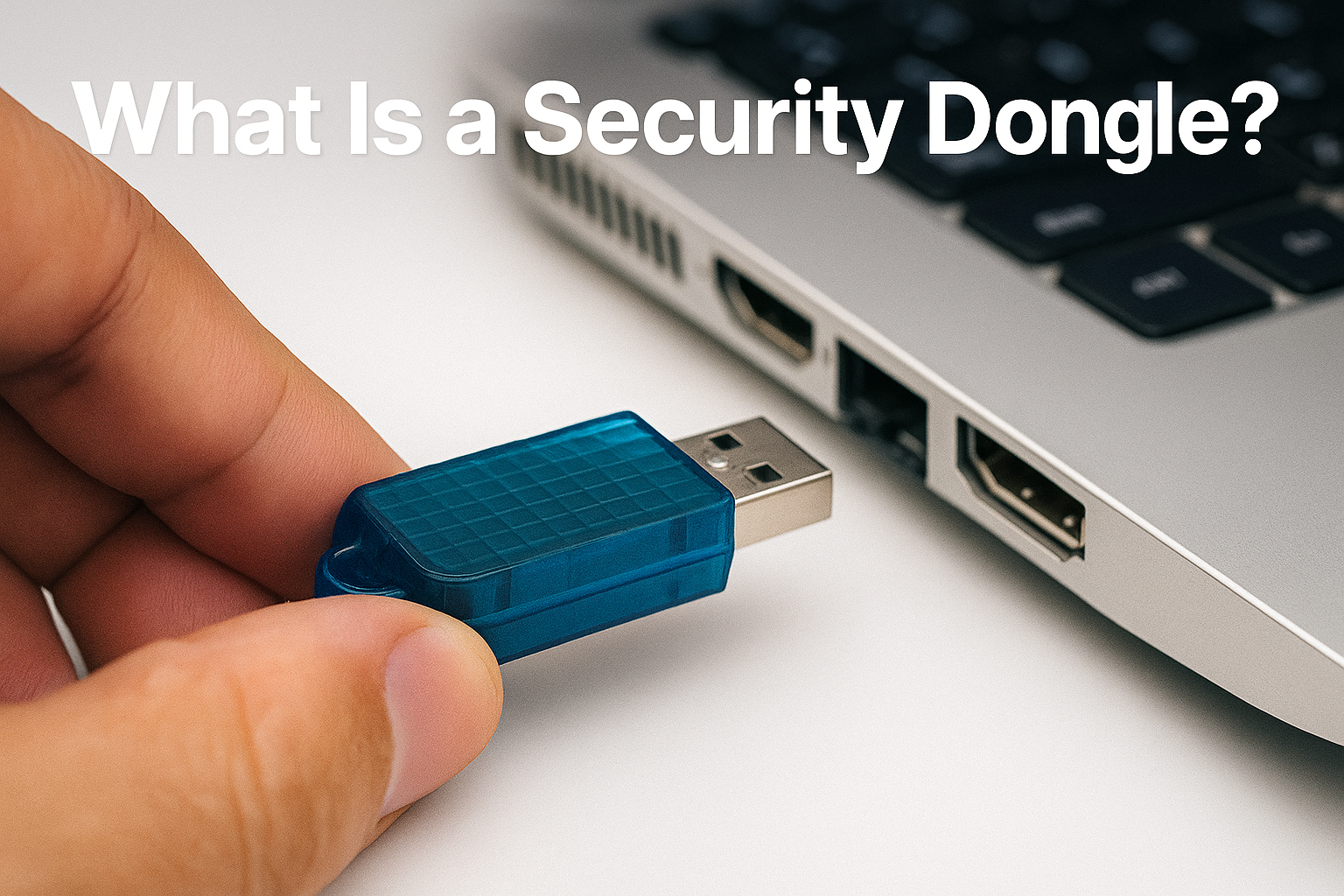What Is a Security Dongle?

A security dongle is a small USB key that protects licensed software by proving ownership through hardware, not just a password.
A security dongle, sometimes called a license dongle or hardware key, is a small device—usually USB—that unlocks or enables specific software when connected to a computer. It’s a physical token of trust. Inside the dongle lives a secure chip holding cryptographic keys or even small snippets of executable code that verify whether the software is legally licensed. Without it, the program won’t start or runs in limited mode.
The idea dates back to the 1980s when developers needed a way to stop high-value software from being copied endlessly. CAD/CAM engineers, translators, and music producers were early adopters. Today, dongles still play a big role in industries where software value is tied to expensive workflows—think engineering design suites, broadcast editing, industrial control, or medical imaging. Despite decades of progress, the goal remains the same: make sure only authorized users can run what they’ve paid for.
Why Hardware Still Matters
Most digital rights systems today live in the cloud. But dongles stick around because they solve problems the cloud can’t. When a dongle is plugged in, it establishes a direct, local handshake with the software. The authentication happens in silicon, not on a remote server, which makes it far harder for attackers to intercept or fake.
A modern USB dongle isn’t just a lump of plastic with a serial number. It’s a tiny cryptographic processor with its own secure storage. Some even execute portions of the application code internally, so critical routines never touch the main computer’s memory. That hardware isolation is the key to its strength. Hackers can spoof a password file, but faking a live cryptographic response from a sealed microcontroller is another story.
There’s also the matter of independence. A dongle works without internet access, which matters for labs, field systems, or defense environments that are deliberately air-gapped. When a license needs to travel with a person instead of a server, a small USB key can be more reliable than a login credential that depends on connectivity.
The Trade-Offs You Live With
None of this comes free. Building a secure hardware key means secure chips, quality testing, shipping, and support logistics—costs that quickly add up. For end users, it also means keeping track of one more physical item. Lose it, and the software it unlocks becomes dead weight until a replacement arrives.
Dongles can be inconvenient for remote workers, too. Unless the vendor offers a way to share licenses through a network host or virtual server, users may find themselves mailing keys around or juggling USB hubs between devices. Updating the firmware or migrating to a new PC can also take more effort than simply re-issuing an online activation.
Then there’s vendor lock-in. Once a software company commits to a specific dongle platform—Aladdin, Sentinel, Nexcopy or Wibu, for instance—it’s rarely easy to switch. Each vendor has its own SDK and encryption scheme, which means compatibility headaches if the hardware gets discontinued or if an OS update breaks the driver. The very security that makes dongles tough to crack can also make them tough to evolve.
When Dongles Still Win
Despite their quirks, security dongles remain the best option for protecting high-value software that can’t risk being pirated or tampered with. CAD developers, professional media houses, and industrial automation firms still depend on them for that reason. In these markets, losing one stolen copy could mean tens of thousands in lost revenue.
They also shine in environments that can’t rely on the cloud. A field engineer restoring a turbine controller in an offline system doesn’t want to call home for license validation. A surgeon using proprietary imaging software doesn’t want patient-data systems exposed to the web. In those cases, the presence of a physical key offers certainty that no remote activation server can match.
Newer systems are starting to blend both worlds: hybrid models where a dongle holds the root key but syncs to a license server for tracking or backup. It gives companies the security of hardware with the flexibility of cloud management. You might think of it as the evolution of the dongle—part token, part tether.
Said Another Way:
Security dongles aren’t going away. They’ve simply matured from crude plastic keys into sophisticated micro-devices that anchor trust in software licensing. While online authentication dominates the consumer world, professionals who deal in critical systems still prefer something they can hold in their hand—a key that works even when the network doesn’t.
In a digital age obsessed with convenience, the humble hardware dongle is a reminder that sometimes the strongest protection is the one you can physically plug in.
